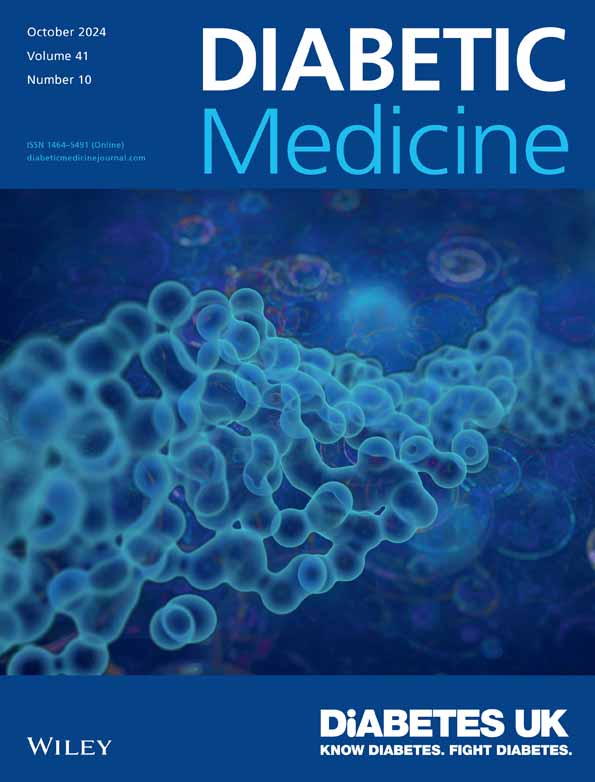The Diabetes Attitudes Wishes and Needs (DAWN)-SMI study: A cross sectional comparison of the psychosocial impact of diabetes in adults with and without severe mental illness
Abstract
Aims
People with severe mental illness (SMI) are 2–3 times more likely to have diabetes than the general population. Little is known about the impact of living with diabetes for people with SMI. This study investigates psychosocial problems and diabetes self management for people with SMI and diabetes.
Methods
We compared cross sectional survey data collected from 258 adults with diabetes and SMI in England with 500 adults with diabetes from the UK sample of the second Diabetes Attitudes, Wishes and Needs study (DAWN2). Effect size (ES) tests were used to quantify differences between the two samples adjusted for diabetes type, age, gender, treatment, treatment duration, diabetes complications and co-morbidities to achieve comparability of the two samples.
Results
Compared to the DAWN2-UK sample, people with diabetes and SMI reported poorer quality of life (WHOQOL ES −0.3 (CI −0.5, −0.1), p < 0.001), mental well-being (ES −13.4 (CI −17.3, −9.5), p < 0.001) and increased diabetes distress (PAID5 ES 1.6 (CI 0.9,2.3), p < 0.001). While people with diabetes and SMI reported a negative impact from diabetes, their SMI had a greater impact on their lives than diabetes (mental illness impact profile 2.6 ± 1.1 vs. diabetes impact profile 3.4 ± 1.0, p < 0.001). People with SMI reported being less engaged in self management than the DAWN2-UK population (SDSCA-6; ES −0.4 (CI −0.7, −0.1), p = 0.01).
Conclusions
The psychosocial impact of diabetes is greater for people with SMI. To reduce inequalities in diabetes outcomes, people with SMI and diabetes require tailored support for diabetes management that considers the additional challenges associated with living with a severe mental illness.


 求助内容:
求助内容: 应助结果提醒方式:
应助结果提醒方式:


